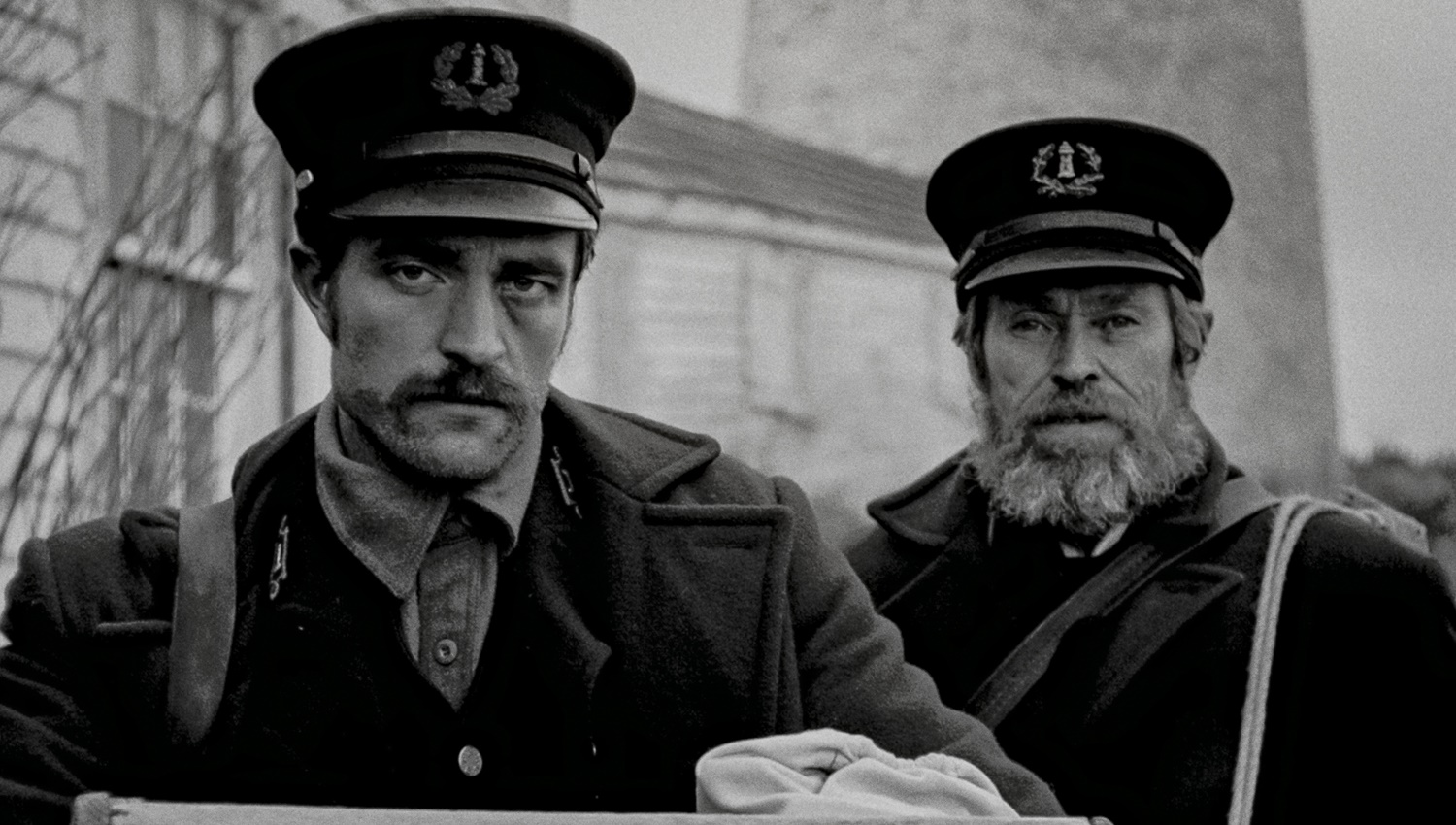Director Robert Eggers first film The Witch redefined the horror genre on an independent scale. Before Get Out, Us or Hereditary ushered in a new wave, Eggers scrappy little unnerving film about a disturbed family in the woods, not only bewildered those who saw it, but showcased a filmmaker with an acute style and warped sense of madness. His sophomore feature landed at Sundance with praise, despite being a peculiar black and white movie shot in an aspect ratio of 1.19:1. According to IMDB “the idea of widescreen only came about in the 1950s – we wanted to take people back further than that.” The Lighthouse takes you back alright, it will have most audiences scratching their head trying to figure out what in the bejeezus they’re watching, or furthermore what’s the point of all this.
Thomas Wake (Dafoe) is the keeper of the light and his new second mate is a former timberman, Ephraim Winslow (Pattinson). They have just been tendered in and dropped off at their post, cut off from the world for four weeks. Wake tells the young lad what’s what, but the introverted Winslow doesn’t take his bossing around for too long. When they both get liquored up, the beans get spilled. Winslow notices that the peg legged old beard locks the desk drawer in their shared quarters, as well as the gate to the lamp than shines for miles. What’s he hiding? Curiosity burns amidst the lonely days of physical work. “Dirty weather lurkin’ about,” Wake forecasts, after Winslow goes and does something he’s been warned against. The wind changes, with it comes a madness that will invade the minds of these two lighthouse keepers in 1890.
The iconic foghorn sound by sound designer Damian Volpe is more memorable than the score itself, maybe the plot even.
It begins with a fart and ends with a blister, but The Lighthouse is in no hurry to get weird. Unlike The Witch’s reward for patience, there is little spectacular about Eggers second feature. Stunning to look at for sure, the contrast between his many shades of black and grey are magnificent. The stormy blast of ferocious waves slamming into the withered old silent beacon are breathtaking. The iconic foghorn sound by sound designer Damian Volpe is more memorable than the score itself, maybe the plot even. It functions as the sound of dread and anticipation throughout the film. If Wake is wedded to the light as he says, the viewer is married to the prospect of this mysterious movie finally taking shape, in which it sadly never does.
There is a real language (or perhaps its sound) barrier between Dafoe’s authentic sailor gruff. Many times even Winslow asks his employer to repeat his words, thankfully for us. Sound design is far valued over works spoken. The Lighthouse takes the viewer on a metaphorical journey more-so than a literal one. This isn’t a thriller, nor a horror movie, and it’s only suspenseful because we believe something monumental or grotesque will eventually happen with all that dread that’s stoked for nearly two hours. Pattinson and Dafoe fully inhabit Eggers vision of this grimy duo left to their own nightmarish devices. Yet even their wild eyed characters grow burdensome, often repeating the same scant journey from lighthouse to sleeping quarters. Reading deeper into Eggers creation might produce more insight, sadly The Lighthouse does little more than encourage the viewer to escape to whatever light you can find as soon as the credits splash on the screen.
Final Thought
The Lighthouse pales in comparison to Eggers previous film The Witch, keeping his audience anticipating some climax than never arrives.


4 thoughts on “The Lighthouse”
Question: what was the “climax” of THE WITCH. I took in all the details of that film and when it was over, felt like I’d been cheated out of an actual story.
The Climax of The Witch is when the goat turns on the father, and the characters we have been following meet their end. If you didn’t like The Witch, I would say you will have an even more difficult time with The Lighthouse.
I’m glad someone out there is saying this. I just finished watching The Lighthouse.
I left the theater confused, scratching my head, thinking there must be symbolic meanings involved in all this, and that unlike various other arthouse films that communicate or hint at those meanings, this film was too subtle or filled with too much distracting material for me to notice.
I also figured, there must be some thought you have to put into interpreting which events were hallucinations, dreams, literal, and metaphors, but then I realized, nothing that was being said and no theme that was being implied (which I did not sense much of) was compelling enough to me to be worth the effort of decryption. I just didn’t care enough and was ultimately disappointed.
The Witch, on the other hand, was very strange and a bit muddled as well and yet I felt I had complete understanding of everything that happened. This just felt incoherent.
I felt it was one of those pretentious movies that tried to hard to be smart, so failed at telling a good story. I waited for the climax as well, and…I guess I still am.